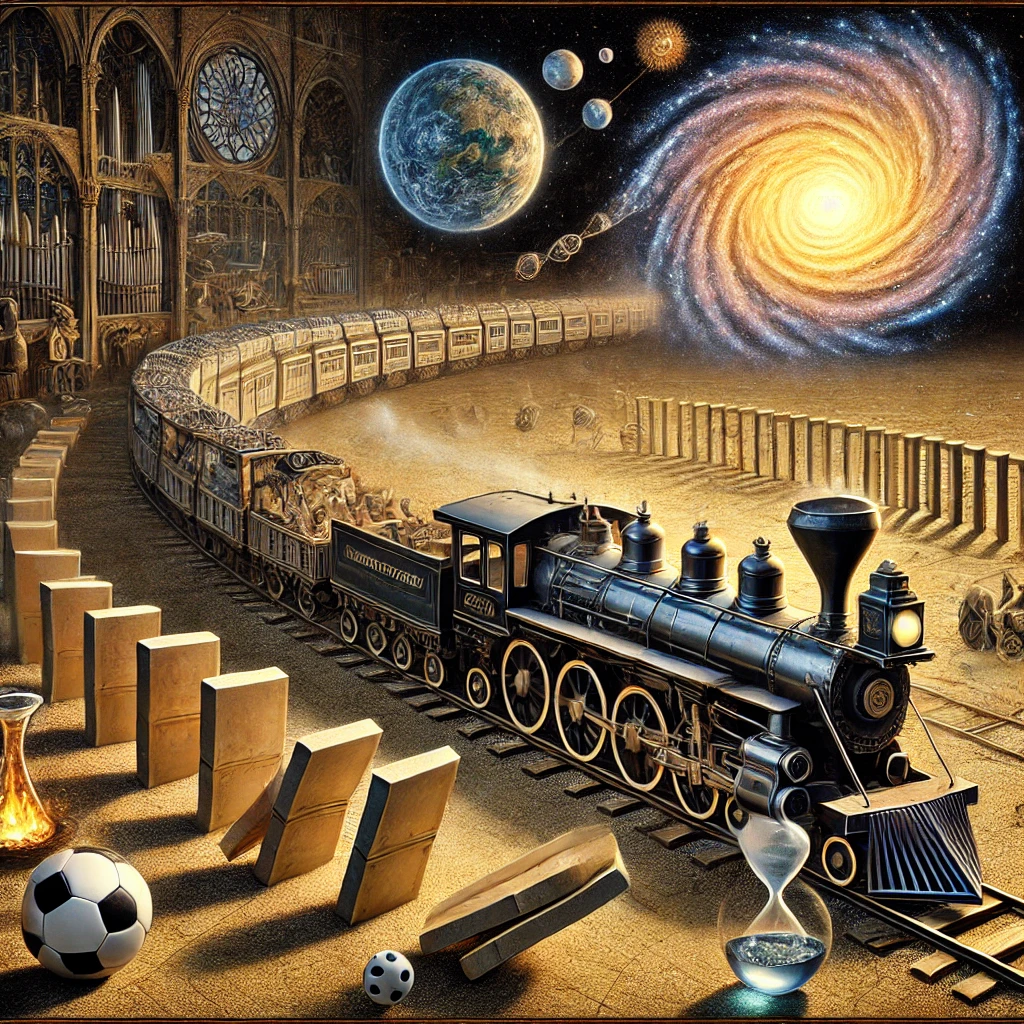
Aquinas' First Proof of God: The Argument from Motion
Thomas Aquinas, a 13th-century philosopher and theologian, gave us five logical arguments for the existence of God. The first of these is called the Argument from Motion. Don’t worry—you don’t need a philosophy degree to understand it! Let’s break it down using simple language, relatable examples, and a touch of analogy.
The Big Idea: Things Change
Take a moment to look around. Do you see things moving or changing? Maybe a fan is spinning, a clock’s hands are ticking, or a tree’s leaves are swaying in the wind. Aquinas noticed that everything in the world is in motion or undergoing change—but motion doesn’t just happen by itself. Something always causes it.
For example:
- A soccer ball doesn’t roll across the field by itself. It needs a player to kick it.
- Water doesn’t boil unless heat is added to it.
- A stack of dominoes doesn’t tumble unless the first one is pushed.
In each case, something in motion (like the ball rolling or the boiling water) was set in motion by something else (like the player or the heat).
The Chain of Movers
Now, let’s think a little deeper. What caused the soccer player to kick the ball? Maybe it was a coach’s instructions. But then what caused the coach to give the instructions? Eventually, we have to ask: what started this chain of causes and effects? If we keep going backward forever, we’d never have a beginning.
This is where Aquinas’s insight comes in. He argued that there must be a “First Mover” that started everything but wasn’t moved by anything else. This First Mover, Aquinas said, is what we call God.
An Analogy: The Train
Imagine a long train. The cars are being pulled along the tracks, but they can’t move themselves. Each car depends on the one in front of it to pull it forward. Eventually, though, you’d get to the engine. The engine moves all the cars but doesn’t need to be pulled by anything else. God, Aquinas says, is like that engine—the ultimate source of motion for everything in the universe.
A Real-World Example: The Big Bang
Modern science gives us a fascinating clue that supports Aquinas’s idea. Scientists say the universe began with the Big Bang, a massive explosion that started everything we see today. But what caused the Big Bang? While science can explore the “how” of the universe’s creation, Aquinas’s argument points us to the “why.” The First Mover—God—is the ultimate reason anything exists or moves at all.
Conclusion
The Argument from Motion isn’t just about things physically moving, like trains or soccer balls. It’s about the deeper question of what started everything. Aquinas’s answer is that there must be a First Mover that is eternal, unchanging, and independent. For believers, this is God—the one who sets the universe in motion and keeps it running.
By thinking about everyday examples and asking the big questions, we can begin to understand why Aquinas’s argument has stood the test of time. It’s a way of looking at the world that points us to something greater than ourselves.
References
- Aquinas, Thomas. Summa Theologica. Translated by Fathers of the English Dominican Province. Benziger Bros., 1947. Available online at: New Advent.
- Feser, Edward. Five Proofs of the Existence of God. Ignatius Press, 2017.
- Craig, William Lane. Reasonable Faith: Christian Truth and Apologetics. Crossway, 2008.